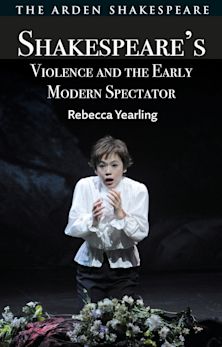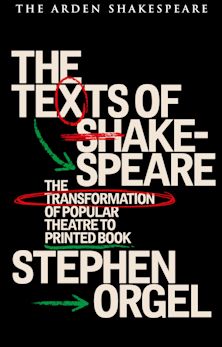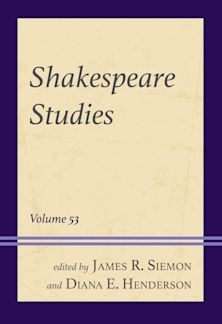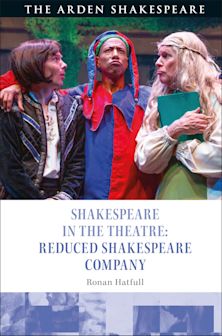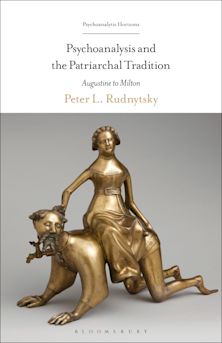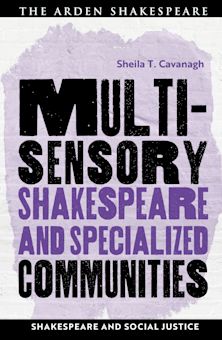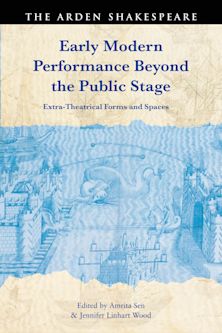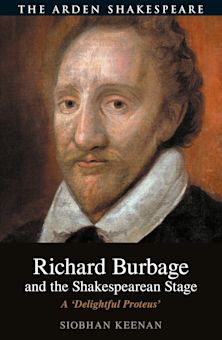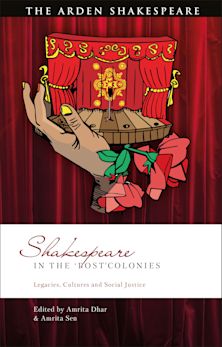- Home
- ACADEMIC
- Literary Studies
- Shakespeare Studies
- Shakespeare and the Translation of Identity in Early Modern England
Shakespeare and the Translation of Identity in Early Modern England
Shakespeare and the Translation of Identity in Early Modern England
You must sign in to add this item to your wishlist. Please sign in or create an account
Description
Featuring contributions by established and upcoming scholars, Shakespeare and the Translation of Identity in Early Modern England explores the ways in which Shakespearean texts engage in the social and cultural politics of sixteenth- and early seventeenth-century translation practices. Framed by the editor's introduction and an Afterword by Ton Hoenselaars, the authors in this collection offer new perspectives on translation and the fashioning of religious, national and gendered identities in A Midsummer Night's Dream, Hamlet, Macbeth, Coriolanus, and The Tempest.
Table of Contents
Notes on Contributors
Introduction Liz Oakley-Brown
1. Schooling Coriolanus: Shakespeare, Translation and Latinity Barbara Correll
2. A Midsummer Night's Symposium: Translating Platonic Love in A Midsummer Night's Dream Erica Birrell
3. 'Silence! Trouble Us Not!': Travail and Translated Identity in The Tempest Julia Major
4. Harming Macbeth: A British Translation Paul Innes
5. 'Most Retrograde to Our Desire': Translating Recusant Identity in Hamlet Richard Chamberlain
Afterword: Ton Hoenselaars
Index
Product details
| Published | Apr 14 2011 |
|---|---|
| Format | Ebook (Epub & Mobi) |
| Edition | 1st |
| Extent | 208 |
| ISBN | 9780826425393 |
| Imprint | Continuum |
| Series | Continuum Shakespeare Studies |
| Publisher | Bloomsbury Publishing |
About the contributors
Reviews
-
'This is an insightful book that opens up Shakespeare studies and extends awareness of the fundamental importance of the concept of translation across time and cultures.'
Susan Bassnett, Professor in the Centre for Translation and Comparative Cultural Studies, University of Warwick, UK
-
'Humanism and the reformation were closely intertwined with the Early Modern regime of translation, and the essays in this splendid volume of top-notch criticism demonstrate just how intensely these processes informed the shaping of identities and discourses in the period. The chapters variously use translation as a trope, consider Shakespeare's translated afterlives, or consider the traces left by his classical sources, by the language of Tyndale's Bible, or by the harsh routines of teaching Latin through translation in Elizabeth's grammar schools. All highlight translation as a key concept that reveals fascinating subtexts for Shakespeare and unlocks a range of original readings.'
Professor Dirk Delabastita, University of Namur and CETRA, Leuven, Belgium
-
Shakespeare and the Translation of Identity in Early Modern England is an illuminating collection of five essays that use translation to approach the formation of social, national, religious and gender identities in Shakespeare's dramatic productions... The entire collection of essays will be of great interest and use to those who are primarily concerned with the study of the 'cultural' realities of the Shakespearean universe, as well as those inclined to adopt a more 'linguistic' approach.
Rocío G. Sumillera, Universitat de València, English Text Construction (Vol. 6:1)

ONLINE RESOURCES
Bloomsbury Collections
This book is available on Bloomsbury Collections where your library has access.













